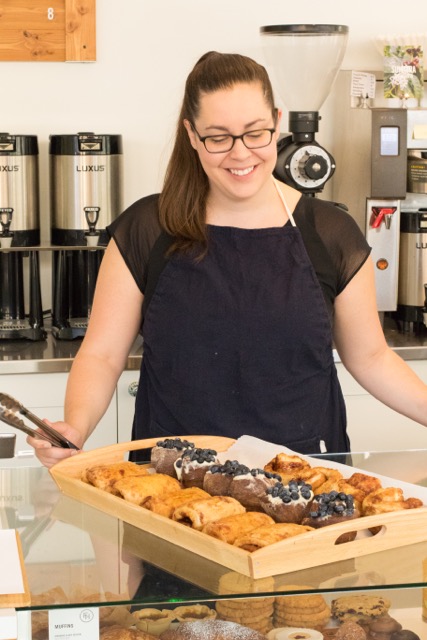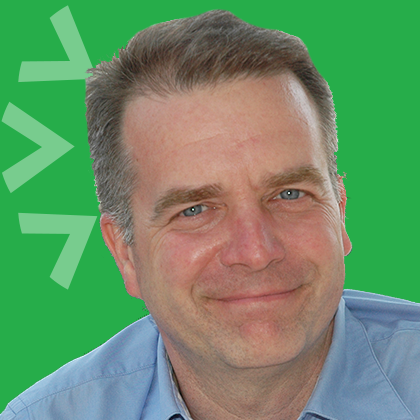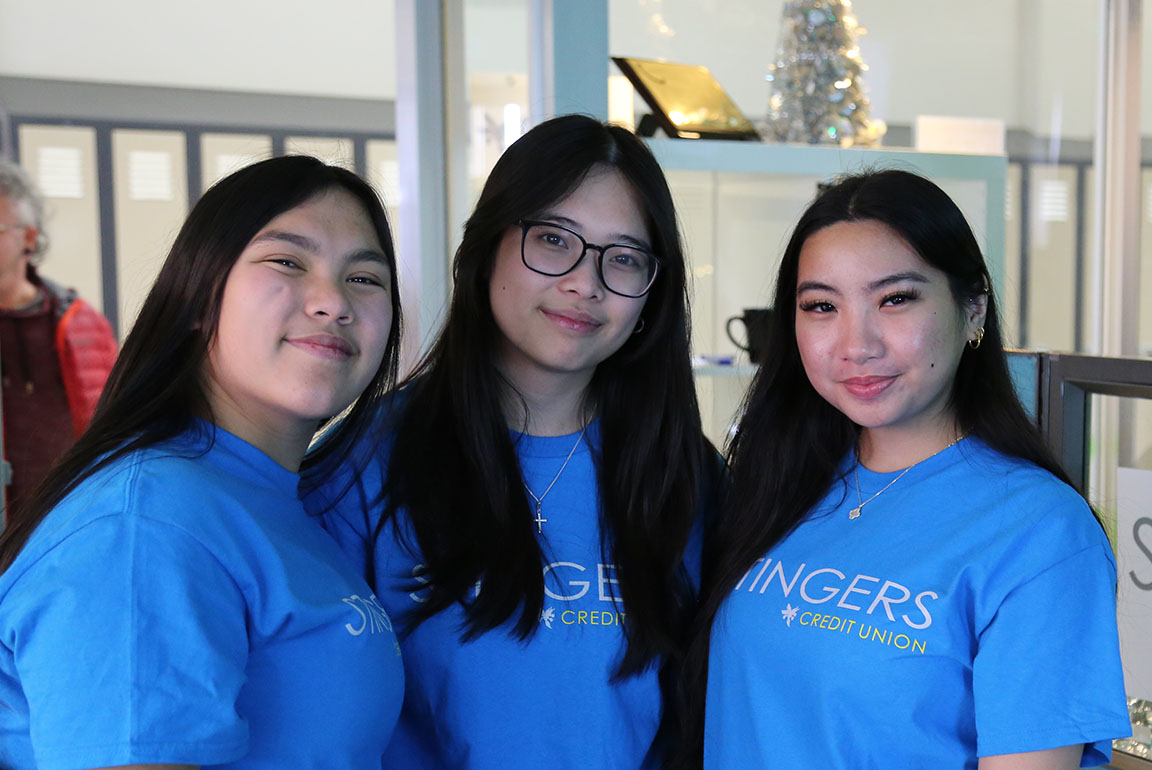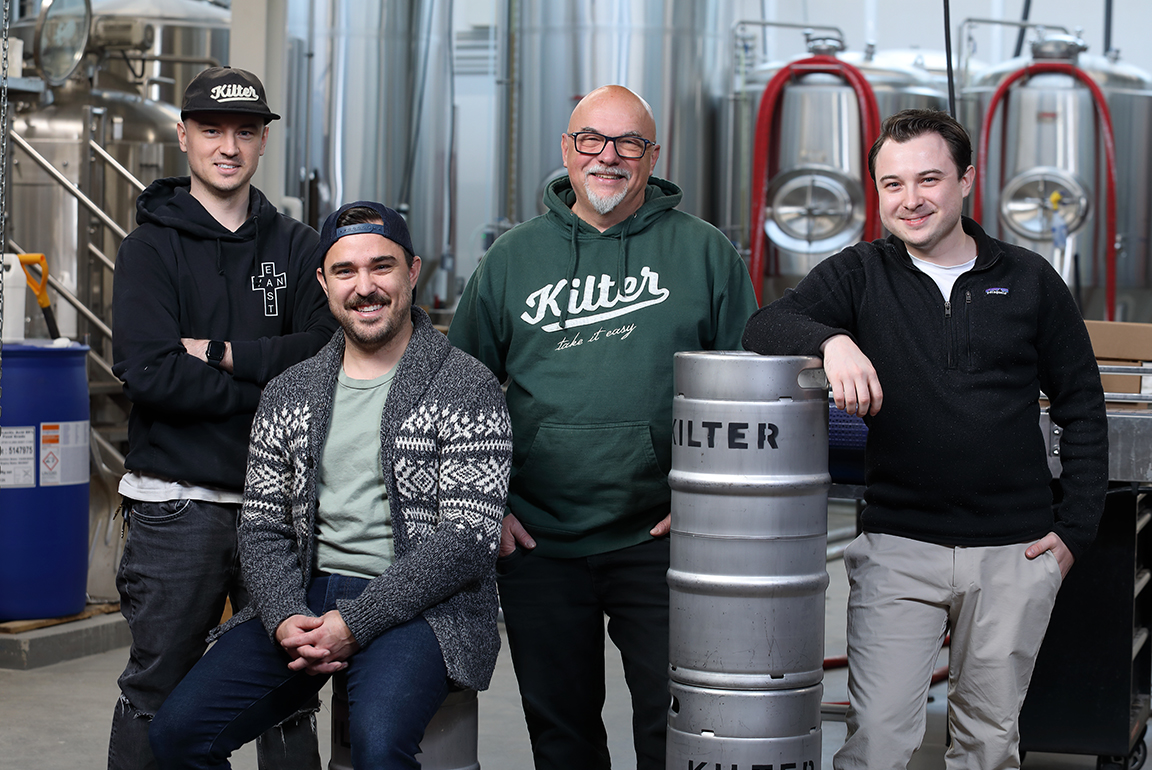Fools and Horses Coffee Company — good from the ground up
Winnipeg’s coffee culture has seen some remarkably positive changes over the last few years. Numerous new independent coffee shops have brought colour and vibrancy to what was a dull landscape dominated by large coffee chains.

In many ways, the evolution is perfectly exemplified by Fools and Horses Coffee. Besides offering well-prepared, high quality coffees and teas, Fools and Horses defines itself with a number of novel features that are definitely not ‘business as usual’.
Coffee lovers will appreciate Fools and Horses Coffee Company selection of beautifully roasted direct trade coffee and Manitoba’s first ModBar Coffee System—a sleek pair of counter-mounted brew heads that offer an unhindered view of the barista expertly pulling every shot of espresso.
For those customers interested in other beverages or delicious food, Fools and Horses features a unique wine on tap system, regional microbrews and a creative menu that emphasizes local products and suppliers.
Fools and Horses regularly brings communities of people together; hosting special events like plays, discussion panels, musical revues, workshops and features monthly exhibits of works by local artists and photographers.
More remarkably, behind this attractive mix of coffee, community and culture, Fools and Horses is implementing innovative approaches to make the business a force for economic, social and environmental good.

Being a coffee shop and a sustainable business
As James Magnus-Johnston, a Fools and Horses partner, explains “I’ve been teaching models in sustainability, social enterprise and triple bottom line approaches and we really wanted to test these ideas to see whether or not they were viable. Right from the very beginning of Fools and Horses we wanted to make sure these concepts were integrated into every stage of planning”. This commitment to a triple bottom line business model translates into a number of actions and goals that benefit the environment, their employees or the customer. For example, Fools and Horses would like to be a zero waste business.
“We’re already at 85% compost collection and diversion. It surprised us how quickly we were able to hit that diversion rate,” Magnus-Johnston noted. “We have a couple of hurdles in trying to find ways to divert other types of waste, like the bags our coffee beans come in, but it shouldn’t take long to figure out solutions to some of these problems.” “We’re using Step-Up Waste Management to collect our compost. This is in lieu of the city providing compost collection; which is okay because it provides a space for social entrepreneurs to develop businesses and offer these sorts of much needed services.”
In fact, Fools and Horses has calculated that only three percent of the waste generated and collected in the coffee shop actually ends up in the landfill; quite a remarkable feat for a food services business. It’s achieved this diversion success through a combination of employee and customer education.
“We are working on effective ways to communicate to everyone who frequents the café so that we get up to a higher level of understanding of how almost everything we sell to them is compostable or recyclable and doesn’t necessarily have to be put in the garbage. Tools like a graphic posted at our composting and recycling area will help.”

The task of tracking and calculating Fools and Horses environmental footprint fell to Gavin Stroh, a practicum student from Canadian Mennonite University. He developed a tool for tracking waste and calculating the shop’s greenhouse gas emissions. According to Magnus-Johnston, “Gavin developed the system and all of us at the coffee shop have bought into the system and actively implement it.” Beyond wanting to test some of the practices Magnus-Johnston teaches, Fools and Horses also hopes to show other small business owners that incorporating environmental and social sustainability into day to day operations isn’t too hard or time intensive to take on. Tracking environmental performance gives Fools and Horses a yardstick to measure their efforts, look for ways to improve their performance and take responsibility for their greenhouse gas emissions.
On the social impact side of the business Fools and Horses broke with industry practice and pay their employees a living wage. They decided to go this route because, in Magnus-Johnston’s words,
“We want to prove that it is not too hard to pay people a living wage. It motivates people in a different way.”
“It’s the difference between valuing the staff you hire, training them really and having higher expectations, versus having higher turnover and the higher costs associated with regularly replacing staff.” Fools and Horses is using Benefit Corporation, or B Corp, guidelines to help structure how it manages its environmental and social impacts. B Corporations commit to operating in a way that benefits society as well as their shareholders. Participating companies must be accountable and transparent about their performance. Interested companies can use an assessment tool to determine how they perform and what would be required to become a certified Benefit Corporation. For Magnus-Johnston becoming a B Corp is longer term aspiration, “We hope that we can become certified but we have to do a number of other things to meet the eligibility requirements. We’ve set several aspirational goals and in a year from now we’ll look at them to see if we reached them. The B-Corp guidelines give us something to aim for. Already, based on our assessment of how we are doing to date, we’ve scored fairly high. If we certify then we’ll find out if this holds up because someone will be scrutinizing our performance with recommendations to improve these things.”

Fools and Horses and ACU: A values match
Fools and Horses has been an ACU member from the outset. For Magnus-Johnston, being an ACU member simply made sense. “We thought that ACU’s values lined up closest with ours. We have a social enterprise mandate, that is to say, we want to reinvest in non-profits like Transition Winnipeg or RISE (a social enterprise established by two of the Fools and Horses partners). We want to see some of what we are making go back into learning about how to make these changes across the systems. We thought that ACU would recognize that these goals have real value as opposed to taking away from the viability of our business. “While customers may not initially notice or place a high priority on Fools and Horses environmental and social commitment, Magnus-Johnston takes the long view, “When you take greater care of your products, your customers, and your space and people see all those things line up it moves them to think about your business in a more positive way.”
“We don’t want these necessarily to be the hook, we want people to come here because it is a good place to be, and then have that conversation with them about our efforts to be a socially and environmentally sustainable enterprise.”
For the partners at Fools and Horses the time, thought and effort put into the social, economic and environmental components contribute to its popularity and lay the foundation for long term success.
Up Next
Celebrating the 10th anniversary of student-run credit union
Just over 10 years ago, a survey circulated at Winnipeg’s Technical Vocational High School. The results showed that students at the school, commonly known as Tec Voc, felt short-changed—they were…
Kilter Brewing Co. serves up craft beer and community connection in St. Boniface
Deep in the heart of St. Boniface, Kilter Brewing Company is a hidden treasure—an oasis for Winnipeggers to escape their day-to-day routines, enjoy craft beer and connect with their community….
How to use a mortgage calculator to budget better
Learn how to use ACU’s mortgage calculator to figure out how much mortgage you can afford, and what budget you should set before you start house hunting. A mortgage lender…




